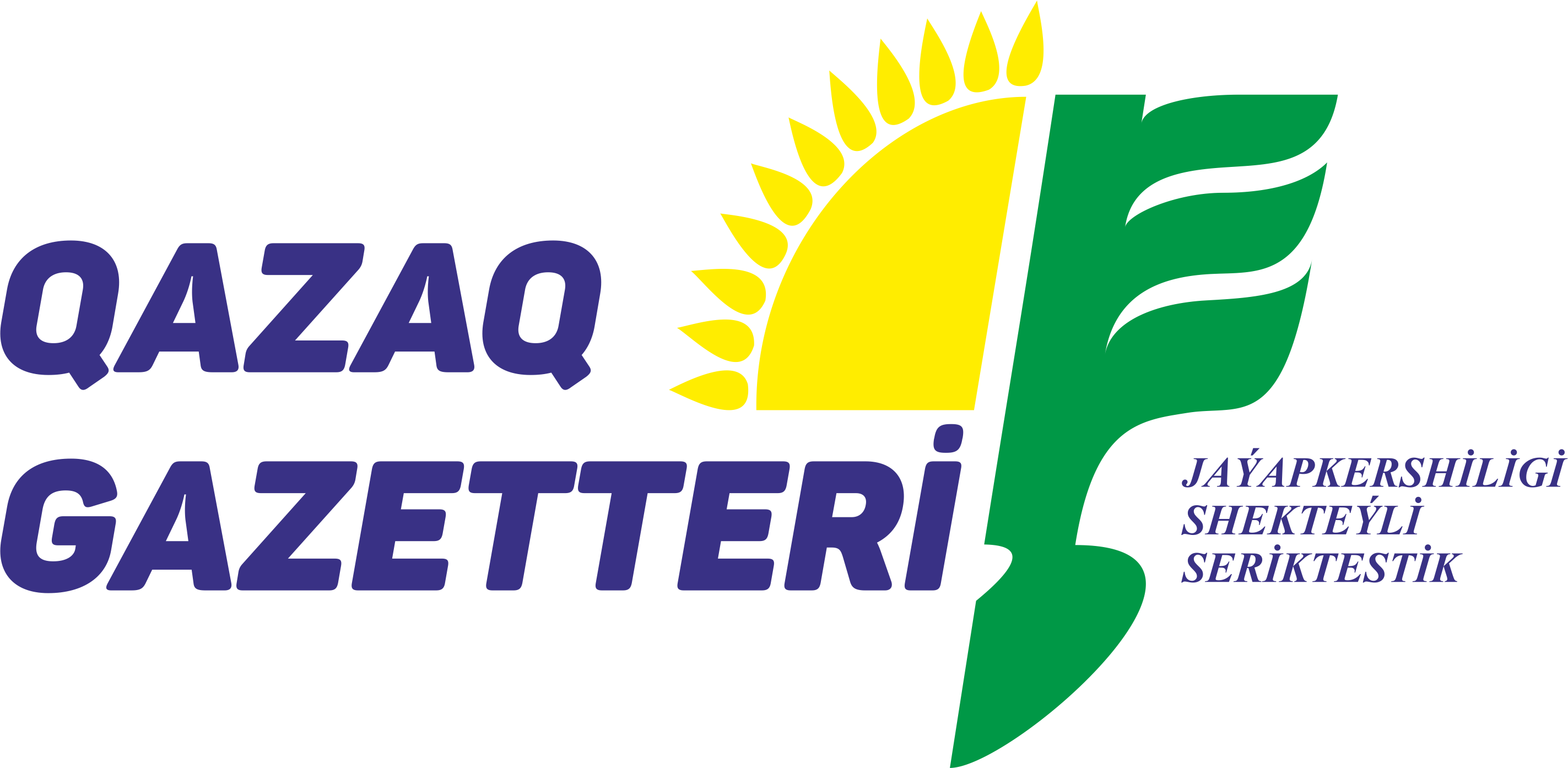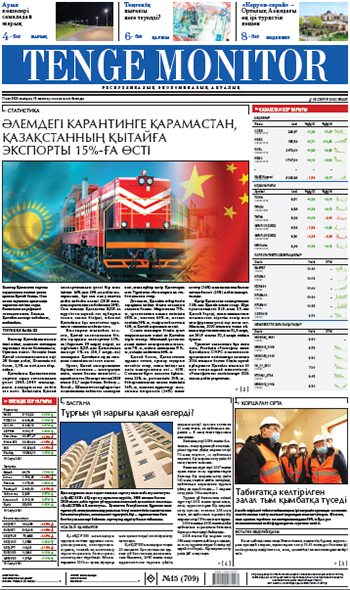- Саясат
- 02 Қыркүйек, 2020
The important thing right now is to maintain stability in Kazakhstan

It should not be forgotten that the most important possessions of our country are State independence and the opportunity to solve its problems independently. At a time such as this, all due consideration must be given to that factor. For more than 28 years, the Republic of Kazakhstan has been existing as an independent State.
The nation-building road has not been easy. In August 1995, our country adopted a new Constitution which established the basic principles governing the existence of Kazakhstan as an independent State. The republic has been strengthened both in terms of nation-building and the level of its international credibility over the ensuing years. Proof of this can be seen in the fact that there has never been a whiff of inter-ethnic conflict with the large Russian population in Kazakhstan, and the country has become a global champion of non-proliferation, while avoiding the risk of being pulled into Afghanistan or any other wars.
Much has been accomplished, yet more remains to be done for the benefit of Kazakhstan and its citizens. The role of the State becomes all the more important when times and situations are complex, as is currently the case. At present, not only Kazakhstan, but also all countries of the world have understandably been primarily concerned with the global pandemic caused by the COVID-19 virus. Our State, just like its peers, has to face the issues caused by its spread. Meanwhile, there are new challenges casting a shadow over our political and economic stability and social peace. Belorussian developments can be referred in this respect. This drama is not foreign to us, because post-Soviet experiences of our country are much similar to those of the Republic of Belorussia.
When interviewed by Victor Verk (zonakz.net), Ermukhamet Ertysbayev, a former Kazakh ambassador to Minsk, said in this connection that ‘if the Lukashenko regime falls as a result of mass rallies and demonstrations, then this will become a catalyst for the protest electorate in Kazakhstan and in Russia’. According to him, ‘it is obvious’. Hence, there is no room for complacency about the risk of repeating the Belorussian scenario in our country. So, what measures should be taken to prevent similar developments?
Exclusive.kz, in an article entitled ‘Последуют ли казахи ‘дурному’ примеру Белоруссии?’ – ‘Will Kazakhs follow the ‘bad’ example of Belorussia?’, said: ‘Just a couple of months ago, Alexander Lukashenko could have only imagined, waking up in a bad dream, what is happening now in the country, that until recently was considered almost an island of stability.

Bat’ka (Old man) managed to walk a line between internal opposition and external pressure from the Kremlin. As to cases of persecution of opponents, they have been considered so far with understanding in the post-Soviet space. What lessons should the Akorda draw from the Belorussian scenario?
Lesson 1: As soon as you lose an information war, it can very soon be followed by a defeat in the political field and a change of power.
In Kazakhstan, as well as in Belorussia, ideology was replaced by propaganda... In such a situation, the media of those two states carefully avoided really important issues of concern to society. And the Kremlin did not fail to fill this gap in a most efficient and productive manner. Russian media behaved like full-fledged national media resources with all the ensuing consequences in each of those two countries. Yet in Belorussia’s experience, when the decisive moment came, it was the private, independent new media that became almost the only news provider both domestically and internationally All the official channels of information turned out to be completely useless and unnecessary. Blocking social media and the internet had no long-term effect.
Lesson 2: Belorussia has demonstrated that society is capable of using non-violent methods of protest.
As in Ukraine on the eve of the last presidential elections, protest activity in Belorussia was stimulated by the thesis not ‘for Tikhanovskaya’, but ‘against Lukashenko’. This means that the agenda was not shaped on a basis of the typical ‘scary stories’ which are often being used as a way of whipping up passions during mass protests. They do not have a separatist character. They have no ethnic component. And they have neither ‘anti-Russian’ context, nor ‘pro-Russian’ context. Unlike the ‘Maidan case’ in Ukraine, there isn’t a geopolitical aspect to these mass protests. This is a purely social conflict. An analogy with the ‘Revolution of dignity’ in Georgia is more appropriate here. If a positive scenario appears, a similar agenda would be possible in the event of social protests in Kazakhstan.
Lesson 3: Even if the Kremlin ‘had helped’ the Belorussians ‘wake up’, things got out of its hand at some point.
Lukashenko’s attempt to play the Russian card ultimately humiliated him. His commendable resistance to the Kremlin’s pressure aimed at forcing Belorussia to sign the Union Treaty and become part of Russia was not appreciated by the Belorussians. It is even more odd that he is currently appealing to Putin for assistance. Anyway, it seems that the Kremlin’s efforts to destabilize the situation in Belorussia on the eve of the elections and thus bring Bat’ka to his knees were successful, and at the same time the actual scale of the protests has apparently turned out to be an unexpected surprise even for Putin himself: at some point everything got out of hand. It is not possible to foresee things like that. Life is wiser than political games.
Yet the case of Belorussia demonstrated how easy the situation in Kazakhstan can be destabilized, and inter-ethnic discourse is, regrettably, most likely to be used. It is symptomatic that following Putin’s lead, Zhirinovsky just recently ‘woke up’ to declare that all the post-Soviet countries need to return to the USSR 2.0. Therefore, the only choice for us is to build loyalty of society as a whole, since as everybody knows, patriotism is a purely economic category. Only a wide class of property-owners, regardless of nationality, is the real basis for any State.
There is neither serious linguistic or regional conflict nor explicit search for historical identity in Belorussia. And finally unlike both Ukrainian revolutions, the Belorussian mass protests do not have the character of anti-colonial or national liberation struggles. Alas, hundreds of studies that are being conducted in Kazakhstan do not answer these important questions, and there is simply no official response to informational provocations. All this suggests that we have absolutely no idea of what the society, in which we live, actually is, which means that we do not have a clear understanding of what our weaknesses and our strengths are.
The Belorussian protesting activists’ avoidance of anti-Russian rhetoric would also explain the rather sluggish reaction of the West. It seems that people up there do not get that the signing of the Treaty on the Establishment of the Union State of Belorussia and Russia, if that happens, would turn the USSR 2.0 project from a utopia into a real nightmare. Well, Kazakhstan that has a high proportion of Russian speakers is just this perfect next candidate.
Lesson 4: The times when you can ‘formally’ win elections are gone even in the countries of the CIS. The cases, where the real election results are not reflected in the official outcome document, lead to a growing radicalization of the protests with the responsibility placed with governments.
Lukashenko did not understand the main thing - he did NOT win this election. The consequences of being in office so many years atrophied his receptors as a politician. And even the ‘elegant’ 80% did not save him. There is one thing our ruling power should learn right now - you must carefully follow the REAL ratings!.. Nothing politicizes society like an all-encompassing sense of injustice. Our people will forgive poverty, but not humiliation.
Lesson 5: Lack of an opposition leader is not a reason for complacency. And such a person may emerge suddenly and become a national leader in a matter of weeks. And even a ‘cook’ can become one.
The acceptance of the same leader can change in a matter of days, transforming from fear to anger… People are tired of ‘standard’ leaders. They need an authentic type of politician they can understand and associate with their own ideas about the leader. Tikhanovskaya’s popularity lies precisely in the fact that she was not going to become president, but took on this role at a time when there were no other options. In fact, Lukashenko himself ‘gave birth’ to her. The main point of Tikhanovskaya’s program is her commitment to holding a fair election. For the electorate, Svetlana turned out to be a much more appropriate figure than the ‘real candidates’. By the way, Lukashenko himself, speaking simple and abrupt phrases, had won the hearts of voters on the same basis at the time.
Not the preservation of the inherited economy, not the strengthening of sovereignty, not the authoritarian modernization, but the relentless struggle between his supporters and opponents is now the main focus of the Lukashenko regime’s work.
The rallies in Belorussia were attended not only by the ‘rotten intelligentsia’, but also by the ‘hard workers’. A consolidating protest ideology emerged with lightning speed in the country, which was shared by part of the security officials, too. A similar scenario could also unfold in Kazakhstan, where society today is seriously embittered by a quarantine... In such circumstances, a split of the elites is inevitable and the question is which side the security forces will be on. It is even worse if this split affects them too, which is very real in our context’.
Kairat KAZAKPAYEV

617 рет
көрсетілді29
пікір

